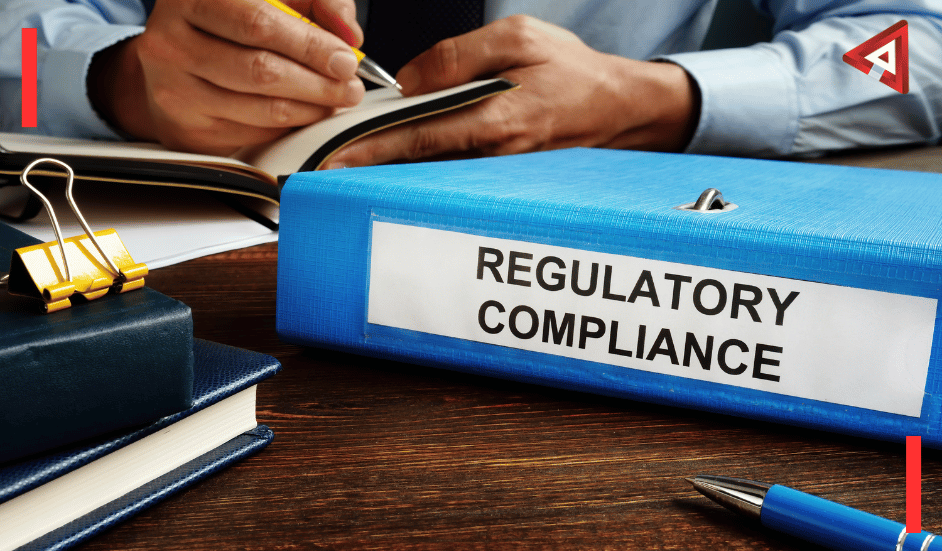Businesses are dealing with more rules and laws than ever before. These rules, also known as regulatory compliance requirements, help keep industries safe, fair, and transparent. As we step into 2025, companies across all sectors, from finance and healthcare to tech and e-commerce, must keep an eye on changing regulations.
Failing to follow these laws can lead to fines, lawsuits, and damage to a company’s reputation. So, understanding the latest compliance trends is not just helpful; it’s necessary.
In this blog, we’ll look at the top regulatory compliance trends to watch in 2025. We’ll keep it simple and straight so that even if you’re not a legal expert, you can still understand what’s happening and why it matters.
1. Data Privacy Rules Are Getting Stricter
What’s Happening:
Countries are introducing stricter data privacy laws to protect how companies collect, use, and store people’s personal information.
Why It Matters:
Consumers care deeply about their privacy. If a company misuses its data, it can break trust. That’s why laws like the GDPR (General Data Protection Regulation in Europe) are spreading to other parts of the world.
What to Watch:
The U.S. is introducing more state-level data privacy laws (like California’s CPRA).
India’s DPDP Act is coming into effect, which impacts companies handling Indian users’ data.
AI and data transparency rules will become part of privacy compliance.
What Businesses Should Do:
- Review how customer data is collected and stored.
- Get clear, written consent before using customer data.
- Be transparent and allow users to access or delete their information.
2. AI Regulations Are on the Rise
What’s Happening:
Governments are working on rules for Artificial Intelligence (AI) to make sure it’s used responsibly.
Why It Matters:
AI is everywhere now, from customer service chatbots to automated hiring tools. But it also brings risks like bias, misinformation, and privacy violations.
What to Watch:
- The EU AI Act is setting a global example with rules for “high-risk” AI systems.
- Countries like Canada, the U.S., and Singapore are introducing AI accountability frameworks.
- Businesses may soon need to explain how their AI works to regulators or users.
What Businesses Should Do:
- Identify which AI tools are in use and assess risks.
- Build transparency and fairness checks into AI systems.
- Document how decisions are made using AI, especially in areas like hiring, lending, or healthcare.
3. ESG Reporting Is Becoming Mandatory
What’s Happening:
Environmental, Social, and Governance (ESG) reporting is shifting from “nice to have” to required by law in many regions.
Why It Matters:
Investors, customers, and governments want companies to prove they’re acting responsibly, not just environmentally, but also in how they treat employees and communities and how ethical their leadership is.
What to Watch:
- The EU Corporate Sustainability Reporting Directive (CSRD) is rolling out.
- The U.S. SEC is working on climate-related financial disclosure rules.
- Many Asian countries are introducing mandatory ESG reporting for listed companies.
What Businesses Should Do:
- Collect data on emissions, energy use, diversity, and workplace safety.
- Create clear ESG reports and share them with stakeholders.
- Align reporting with global standards like GRI, SASB, or TCFD.
4. Remote Work Is Bringing New Labor Compliance Challenges
What’s Happening:
The rise in remote and hybrid work means companies now have to follow labor laws not just in one location but possibly in multiple countries or states.
Why It Matters:
If you’re hiring people remotely from different locations, you may need to follow different tax rules, health and safety standards, or employee rights laws even if you don’t have an office there.
What to Watch:
- Laws around remote work allowances, home office safety, and digital overtime tracking.
- New requirements for cross-border hiring, such as registering as an employer in a foreign country.
- More rules on employee monitoring and digital surveillance.
What Businesses Should Do:
- Review labor laws in each region where remote staff are located.
- Ensure employment contracts follow local rules.
- Be clear about remote work policies and employee rights.
5. Cybersecurity Regulations Are Expanding
What’s Happening:
Due to the increase in cyberattacks, ransomware, and data breaches, regulators are enforcing stronger cybersecurity standards.
Why It Matters:
A data breach doesn’t just affect a company’s bottom line. It affects customers, partners, and public trust. Regulators are now stepping in to make sure companies are better prepared.
What to Watch:
- The EU’s NIS2 Directive requires stricter cybersecurity for digital infrastructure.
- In the U.S., the Cybersecurity and Infrastructure Security Agency (CISA) is pushing for real-time incident reporting.
- Many industries (like finance and healthcare) are seeing sector-specific rules.
What Businesses Should Do:
- Update cybersecurity policies regularly.
- Train staff to avoid phishing and cyber threats.
- Have an incident response plan ready for cyberattacks.
6. Supply Chain Compliance Is Under the Microscope
What’s Happening:
Companies are being held responsible not just for what they do, but also for what their suppliers and partners do.
Why It Matters:
From forced labor and environmental harm to corrupt business practices, governments are saying: “If you work with them, you’re responsible too.”
What to Watch:
- Germany’s Supply Chain Due Diligence Act is now in effect.
- Similar laws are being introduced across Europe, Canada, and parts of Asia.
- U.S. laws around forced labor (like UFLPA) are already blocking goods at the border.
What Businesses Should Do:
- Check who your suppliers are and how they operate.
- Build due diligence systems to track compliance across your supply chain.
- Drop suppliers who break rules or pose ethical risks.
7. Financial Compliance Is Getting More Digital
What’s Happening:
As finance becomes more digital with online banking, crypto, and fintech, governments are setting clearer rules to protect people and prevent fraud.
Why It Matters:
From money laundering (AML) to fraud prevention, companies that handle money now need to prove they know their customers and are reporting suspicious activity.
What to Watch:
- Tighter KYC (Know Your Customer) and AML regulations for fintechs and neobanks.
- Crypto platforms must register and report like traditional banks.
- Central banks may introduce digital currencies (CBDCs) with compliance rules built in.
What Businesses Should Do:
- Automate KYC and AML processes to avoid human errors.
- Stay updated on changing financial rules in each country you operate.
- Work with legal teams or partners who specialize in financial compliance.
8. Whistleblower Protection Laws Are Growing
What’s Happening:
Governments are strengthening laws to protect employees who report wrongdoing, like fraud or safety violations, inside companies.
Why It Matters:
More companies are being asked to build systems where employees can safely and anonymously report problems without fear of being punished.
What to Watch:
- The EU Whistleblower Directive is already being adopted in member states.
- Many countries are demanding that companies have clear internal reporting processes.
- Failing to protect whistleblowers can lead to lawsuits or government investigations.
What Businesses Should Do:
- Set up safe and anonymous reporting systems (hotlines, platforms, etc.).
- Train managers and HR teams to respond to complaints responsibly.
- Ensure whistleblowers are not punished or ignored.
9. Cross-Border Compliance is More Important Than Ever
What’s Happening:
As businesses go global, selling products or hiring people across borders, they face a patchwork of different laws. What’s allowed in one country might be illegal in another.
Why It Matters:
From privacy to product safety to taxes, staying compliant in one region doesn’t guarantee you’re safe everywhere.
What to Watch:
- Growing trend of global harmonization (like international tax reporting via OECD rules).
- Countries are enforcing local rules more strictly for foreign businesses.
- More businesses are using compliance software to stay updated.
What Businesses Should Do:
- Work with local legal experts when entering new markets.
- Stay updated with international standards like ISO, OECD, and UN guidelines.
- Invest in software or tools that help manage compliance across multiple countries.
10. Compliance Teams Are Going Tech-First
What’s Happening:
The days of doing compliance checks with spreadsheets are over. Now, businesses are using compliance automation tools to save time and reduce mistakes.
Why It Matters:
With so many changing rules, human teams can’t keep up alone. Automating checks, alerts, and audits helps companies stay ahead.
What to Watch:
- Use of RegTech (regulatory technology) platforms.
- Integration of AI and machine learning in compliance systems.
- Real-time dashboards for tracking compliance across departments.
What Businesses Should Do:
- Invest in tools that track legal changes automatically.
- Use dashboards to monitor risks, breaches, and updates.
- Keep human oversight in the loop; don’t rely only on software.
Final Thoughts
2025 is shaping up to be a big year for regulatory compliance. With new laws around privacy, AI, ESG, cybersecurity, and global trade, businesses have a lot to manage. But staying compliant doesn’t have to be overwhelming.
Start by:
- Keeping track of changing laws in your industry and the countries you operate in.
- Training your teams regularly on new rules and ethical practices.
- Investing in tools and experts that help automate and simplify compliance.
In the end, compliance isn’t just about avoiding fines—it’s about building trust, improving operations, and doing business the right way.





